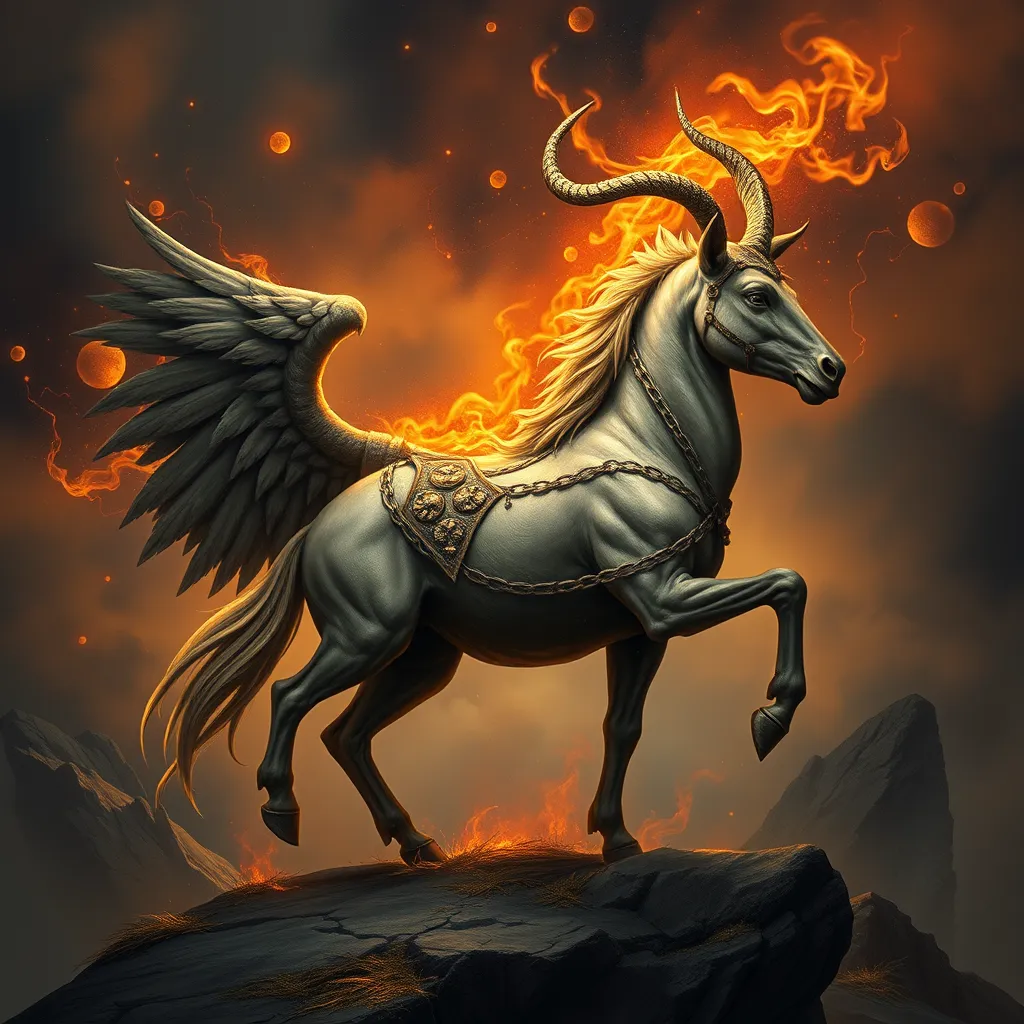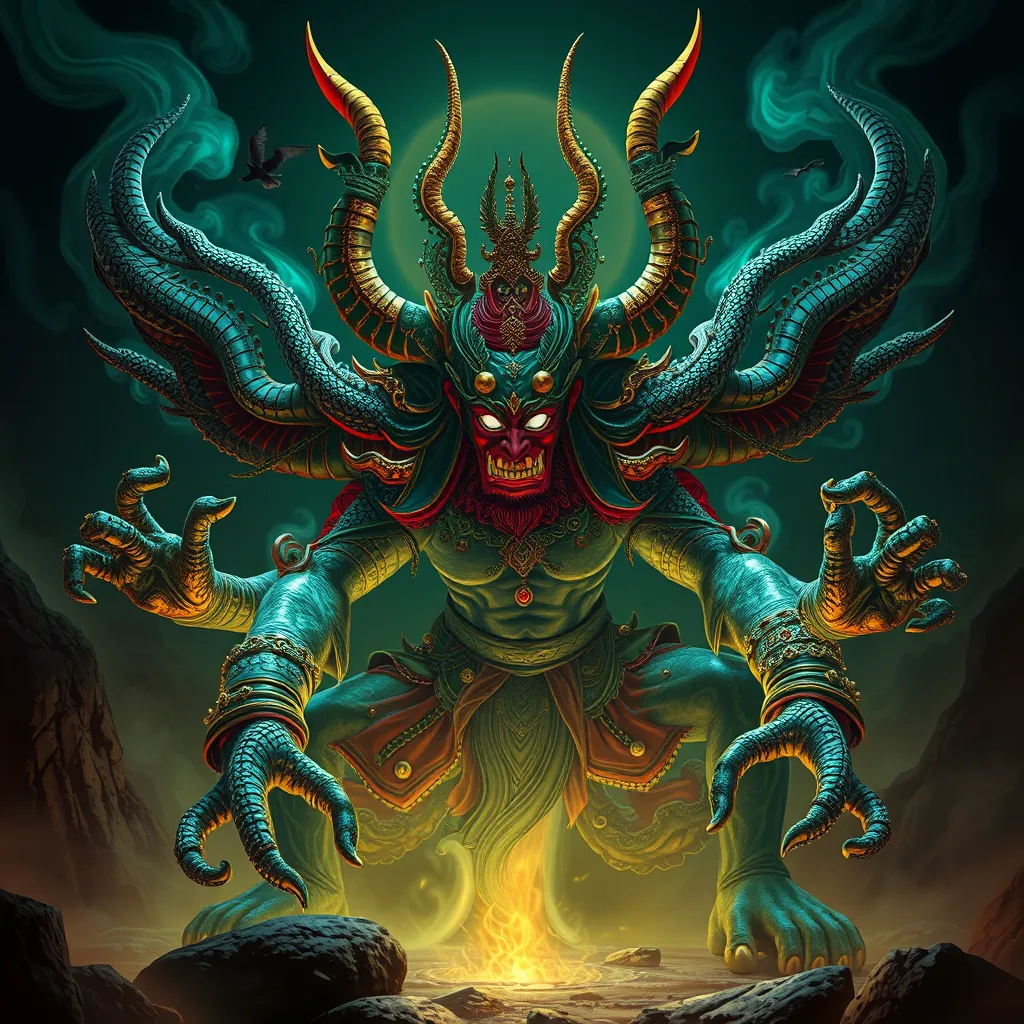The Lore of the Land: Exploring the Spirits of the Babylonian Utukku
I. Introduction
Babylonian mythology is a rich tapestry woven from the beliefs and practices of one of the world’s earliest civilizations. Spanning thousands of years, it encompasses a wide range of deities, spirits, and mythological narratives that shaped the lives of the Babylonians. Among these entities, the Utukku hold a significant place, representing a complex blend of protective and vengeful spirits that influenced the everyday lives of the people.
The Utukku, often considered a manifestation of the human soul or spirit, played a crucial role in the spiritual landscape of ancient Mesopotamia. This article delves into the lore of the Utukku, exploring their characteristics, roles, and lasting legacy in both ancient and contemporary contexts.
II. Defining the Utukku
A. Etymology and cultural context
The term “Utukku” derives from the Akkadian word, which can be translated as “spirit” or “demon.” In the context of Babylonian culture, these spirits were seen as intermediaries between the divine and human realms, often embodying the traits of both.
B. Characteristics and attributes of Utukku spirits
Utukku were believed to possess various characteristics, including:
- Invisibility: They were often unseen, influencing the physical world without direct interaction.
- Duality: Many Utukku could be both benevolent and malevolent, depending on circumstances and human behavior.
- Emotional resonance: They were thought to reflect the emotional states of humans, acting as extensions of human feelings such as love, anger, and fear.
C. Distinction between Utukku and other Mesopotamian spirits
Unlike other spirits in Mesopotamian mythology, such as the Anunnaki (gods of the pantheon) or the Lilitu (demonic figures), Utukku were more closely associated with the human experience. They were viewed as personal spirits, often linked to specific individuals or families, and were integral to the cultural understanding of life and death.
III. The Role of Utukku in Babylonian Society
A. Utukku as protectors and guides
In Babylonian society, Utukku were thought to act as guardians. They provided guidance and protection, especially to families and individuals facing challenges. People often sought their favor through rituals and offerings, hoping to ensure their well-being.
B. Influence on daily life and rituals
The presence of Utukku permeated daily life, influencing various rituals and ceremonies. Some common practices included:
- Household offerings: Families would leave food or incense to appease their Utukku.
- Prayers and invocations: People would call upon Utukku for assistance in times of need.
- Ritual cleansing: To invite good spirits, individuals often engaged in purification rituals.
C. The relationship between humans and Utukku
The relationship between humans and Utukku was complex and often reciprocal. While humans sought the protection and guidance of these spirits, they were also expected to honor and respect them through proper rituals and offerings. Failure to do so could result in the anger of the Utukku, leading to misfortune or illness.
IV. Types of Utukku Spirits
A. Beneficial Utukku: guardians and helpers
Beneficial Utukku were seen as positive spirits who aided individuals in their daily lives. They were often invoked in times of need, such as during childbirth, illness, or personal crises.
B. Malevolent Utukku: avengers and harbingers of misfortune
On the other hand, malevolent Utukku were feared and associated with vengeance. They were believed to bring about misfortune, illness, or even death if disrespected or angered.
C. Nuanced spirits: the duality of Utukku
The duality of the Utukku underscores their complexity as spirits. They could shift between benevolence and malevolence based on human actions, reflecting the Babylonians’ understanding of morality and justice in the spiritual realm.
V. Utukku in Babylonian Literature and Art
A. Representation in ancient texts and mythological stories
Utukku appear in multiple Babylonian texts, often woven into mythological tales that explore themes of fate, justice, and the human condition. These narratives highlight the importance of respecting and understanding the spirits that inhabit their world.
B. Artistic depictions and their meanings
In Babylonian art, Utukku were often depicted in various forms, including human-like figures and abstract representations. These artistic choices reflected the cultural significance of these spirits, often symbolizing the duality of their nature.
C. Insights from archaeological findings
Archaeological discoveries, such as tablets and figurines, provide valuable insights into the beliefs surrounding Utukku. These artifacts often depict offerings made to the spirits, signifying their importance in daily life.
VI. Rituals and Practices Involving Utukku
A. Offerings and ceremonies to appease Utukku
To maintain favorable relationships with Utukku, Babylonians engaged in various offerings, including:
- Food offerings: Fruits, bread, and meat were commonly left at altars.
- Incense burning: Aromatic substances were burned to please the spirits.
- Ritualistic dances: Ceremonial dances were performed to honor the Utukku.
B. The role of priests and shamans in rituals
Priests and shamans held a vital role in mediating between the people and the Utukku. They conducted rituals, interpreted omens, and provided guidance to individuals seeking help from these spirits.
C. The significance of dreams and omens related to Utukku
Dreams and omens were considered powerful messages from the Utukku. Babylonians believed that certain dreams could be prophetic, indicating the favor or anger of the spirits, prompting further rituals to either appease or celebrate them.
VII. The Legacy of Utukku in Contemporary Culture
A. Influence on modern interpretations of mythology
The legacy of the Utukku continues to influence modern interpretations of mythology, with scholars and enthusiasts exploring their significance in contemporary spiritual practices and literature.
B. Utukku in popular culture: literature, film, and art
Elements of Utukku mythology have found their way into popular culture, appearing in various forms of literature, films, and artworks that draw inspiration from ancient Mesopotamian narratives.
C. The ongoing fascination with ancient spirits in modern spirituality
There remains a fascination with ancient spirits like the Utukku in modern spirituality, as individuals seek to connect with historical beliefs and practices that resonate with their own spiritual journeys.
VIII. Conclusion
The Utukku hold a special place in Babylonian lore, symbolizing the intricate relationship between humanity and the spiritual realm. Their dual nature as both protectors and avengers reflects the complexities of life and human emotions, making them a critical aspect of ancient Mesopotamian culture.
As we reflect on the relevance of these spirits today, we can appreciate their enduring legacy in both historical and contemporary contexts. The fascination with the Utukku and their place in mythology reminds us of the timeless nature of human beliefs and the ongoing quest for understanding the unseen forces that shape our lives.



